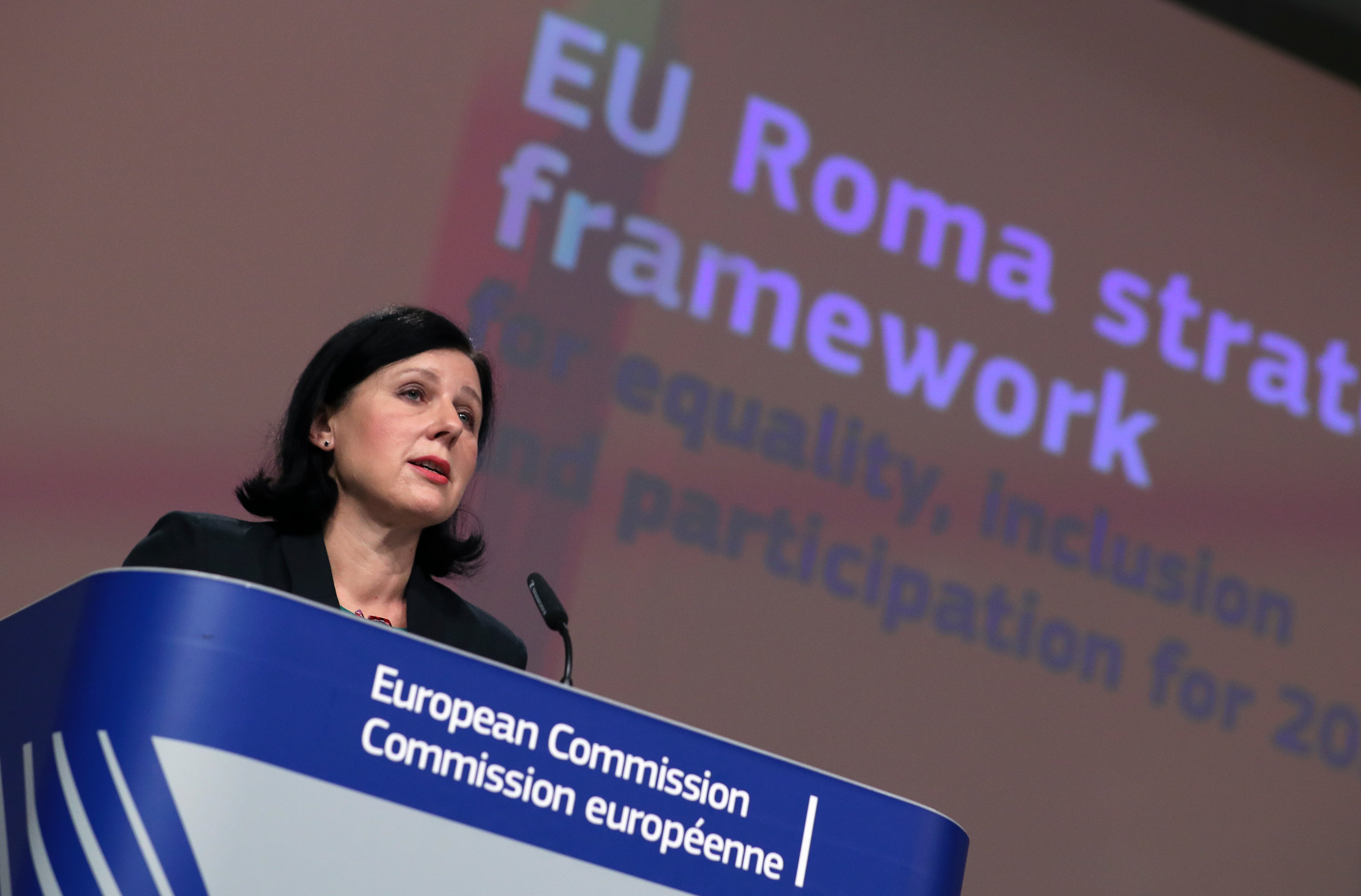EU presents plan to improve plight of its Roma minority
Europe’s treatment of its Roma people has been “inexcusable” over the past decade, a top European Union official says as she presented a 10-year plan to improve life for the large ethnic minority

Europe's treatment of its Roma people has been “inexcusable" over the past decade, a top European Union official said Wednesday as she presented a 10-year plan to improve life for the large ethnic minority.
Around 6 million Roma live in the 27-nation bloc, where the European Commission said 41% experienced discrimination over the past five years and where 85% of Roma children are at risk of poverty compared to 20% of children overall in the EU.
“Simply put, over the last 10 years, we have not done enough to support the Roma population in the EU. This is inexcusable," European Union Vice President Vera Jourova said.
“We cannot accept it," Jourova said as she presented a 10-year plan to improve the plight of Roma, who are among the poorest and least educated in Central Europe and have been discriminated against for centuries.
Under the plan, EU nations will have to submit national strategies by September 2021 and the European Commission will monitor progress toward the 2030 targets, which center on reducing discrimination, improving jobs access for Roma, reducing poverty and improving the quality of education for Roma children.
Equality Commissioner Helena Dalli said the plan sought “to tackle the inexcusable discrimination facing far too many today, and also to change our mindsets, to change the stereotypes which we have in our minds when we look at Roma people.”
This year, the coronavirus pandemic has even worsened the situation for Romas. A commission report said that “Roma children living in marginalized communities are among the hardest hit by the pandemic. Distance learning has been impossible for too many Roma children living in households without IT facilities or electricity."
It also said that the community was disproportionally hit by the pandemic since many often live without basic hygiene and sanitary facilities available to almost all EU citizens. It said they also often live in overcrowded homes and segregated camps.
The EU Agency for Fundamental Rights reported last year that 80% of the Roma population in Europe is at risk of living in poverty, and that hate-motivated crime and harassment were preventing their inclusion in society.
“The Roma are Europe’s largest ethnic minority, and in many member states, they constitute a significant part of the population. But many continue to face discrimination and racism," Jourova said. “The lack of inclusion of Roma communities in our societies is a scar on Europeans' conscious.”
___
Follow all AP stories about racial injustice at https://apnews.com/Racialinjustice
Bookmark popover
Removed from bookmarks